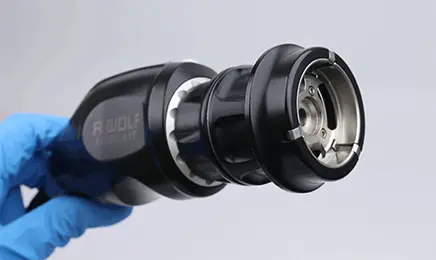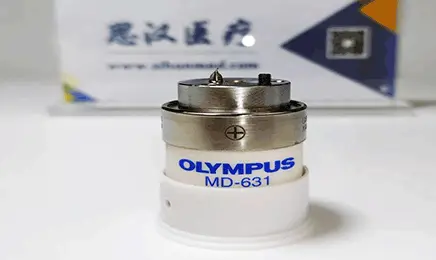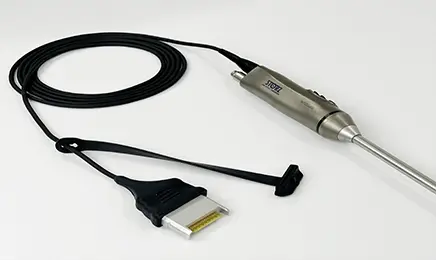Tel: +86-19906868508
E-mail: info@sihanmed.com
Tel: +86-19906868508
E-mail: info@sihanmed.com
Selecting dependable arthroscopy instruments suppliers is crucial, given that surgical outcomes heavily depend on equipment precision. While cost is a factor, compromising quality can lead to device failure, risking patient safety. Reputable suppliers prioritize regulatory compliance, ensuring instruments meet strict medical standards. With counterfeit products flooding the market, verifying supplier credibility becomes essential. There are significant consequences—surgeons lose trust, hospitals face legal liabilities, and patient care suffers. Ideally, every hospital would invest in proven suppliers, reducing long-term risks. Experienced suppliers, having undergone audits, provide traceable certifications. Their rigorous testing procedures—inspecting, sterilizing, and certifying—guarantee reliability. Without proper vetting, clinics might unknowingly purchase substandard tools. Therefore, choosing the right supplier isn’t just about cost—it’s about safety, trust, and long-term value.
Before purchasing, hospitals must scrutinize instrument quality, starting with material durability and manufacturing precision. Ensuring stainless steel or titanium construction prevents corrosion, while proper hinge mechanisms avoid jamming. There should be no visible defects—scratched surfaces, loose parts, or misaligned components indicating poor handling. Reputable suppliers, subjected to ISO audits, provide detailed inspection records. Had they skipped sterilization validation, instruments could harbor dangerous pathogens. With quality control in place, suppliers verify each device’s functionality—testing, calibrating, and approving before shipment. Though some buyers prioritize price, durability matters more in high-frequency arthroscopy procedures. Barring emergencies, hospitals should never compromise on quality. Demand test reports, and if possible, request live demonstrations before finalizing orders.

By adhering to stringent maintenance protocols, seasoned suppliers extend instrument lifespan. After every surgery, proper cleaning—disinfecting, lubricating, and storing correctly—preserves tool precision. Should sterilization be overlooked, microbial buildup degrades performance. With decades in the industry, top suppliers train staff to handle delicate scopes, minimizing accidental damage. They also replace worn components—blades, sheaths, and seals—before failures occur. Were hospitals to use unchecked instruments, frequent replacements would skyrocket costs. Instead of reactive fixes, preventive maintenance saves money long-term. By following the technical standards set by leading endoscopy machine manufacturers, top suppliers leverage advanced coatings and material science to enhance corrosion resistance. Having mastered precision engineering, they ensure tight tolerances, preventing premature wear. Given the complexity of arthroscopy tools, only expert suppliers guarantee lasting functionality.
Before committing to a supplier, hospitals must check for FDA, CE, or ISO 13485 compliance. Although some vendors claim regulatory adherence, faked certificates remain a risk. Unless accompanied by third-party audits, self-reported standards lack credibility. There should be no compromise—missing, expired, or vague certifications disqualify unreliable suppliers. Were a supplier truly reputable, they’d openly share validation reports. Besides mandatory certifications, look for voluntary accreditations like AORN guidelines or EU MDR compliance. Upon evaluating documentation, ensure sterilization methods (EtO, gamma, or steam) match hospital protocols. With patient safety at stake, skipping due diligence is inexcusable. By demanding full transparency, buyers shield themselves from substandard purchases.
While refurbished instruments cost less, hospitals must assess whether savings justify potential risks. Given proper reconditioning processes, reused equipment can perform like new. If improperly inspected, however, hidden defects cause mid-surgery malfunctions. Were budget the only concern, low-cost suppliers might seem attractive, yet reliability issues escalate long-term expenses. Through rigorous reprocessing—cleaning, repairing, and recertifying—trusted suppliers restore functionality. Without OEM-grade spare parts, refurbished devices fail prematurely. Before purchasing, request service histories and warranty terms. Rather than chasing short-term savings, wise buyers invest in refurbished equipment from certified reprocessors.
A supplier’s after-sales service determines their reliability—responding, repairing, and replacing faulty instruments promptly. Had they neglected customer support, unresolved complaints would tarnish their reputation. With 24/7 technical assistance, top suppliers minimize surgical delays. Unless warranties cover defects, hospitals bear unexpected replacement costs. Were a supplier truly dependable, they’d offer extended guarantees without hidden clauses. Upon delivery, fast troubleshooting ensures seamless integration into operating rooms. Besides standard warranties, look for loaner programs during repairs. Given the high stakes of arthroscopy, uninterrupted instrument functionality is non-negotiable. Through transparent policies and rapid response times, elite suppliers prove their commitment to quality.

With years of dedication to the medical equipment industry, Shengjun He has leveraged his solid professional expertise and keen insight into industry trends to establish Sihan Medical as a leading force in the endoscope repair sector. Prior to founding Sihan Medical, he accumulated extensive experience in medical device maintenance—a foundation that proved instrumental for his entrepreneurial journey. His background spans hands-on equipment repair, technical R&D, and management, granting him comprehensive understanding of medical devices, from their underlying technology to market demands.


